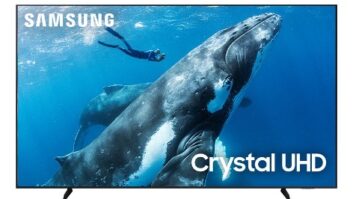Lured by the vast install base of multimedia mobile phones and the growing adoption of portable media players, flash-memory manufacturers are expanding beyond their traditional role as a blank-storage medium and into a platform for securely distributing content.
SanDisk and Matrix Semiconductor have announced products to carry preloaded content on solid state memory cards while Sony will bundle a CD with its Memory Stick PRO Duo card for transferring video clips to its PlayStation Portable.
SanDisk announced that it is marketing a new flash technology called “TrustedFlash” to movie and music studios as a means to securely distribute their content to the rapidly proliferating population of multimedia mobile phones and digital media players. TrustedFlash is a technology platform for securing content to flash drives and can be incorporated into any of the popular memory format form factors, said Pedro Vargas, mobile entertainment director, SanDisk.
It will initially be available in the formats popularly used by mobile phones: miniSD, microSD and SD.
The TrustedFlash platform has an encryption engine and a server for validating Digital Rights Management (DRM) software. Cards featuring TrustedFlash technology also offer regular data storage. To date, EMI, Samsung Wireless, Yahoo! Music, NDS and PacketVideo have committed to the platform, Vargas said.
SanDisk would also release a retail version of TrustedFlash under the brand name “Gruvi.” The Gruvi cards, which will be available in November in three SD formats, will be preloaded with music from several artists, including the Rolling Stones. SanDisk will sell the Stones’ latest album on a Gruvi flash card for a suggested $39.95.
According to Vargas, while pitching the notoriously wary content industry has been difficult, SanDisk feels it has met their piracy concerns. In addition to encryption and DRM software, the cards themselves are tamper proof and will automatically erase all data if opened.
While more expensive than optical media, using flash as a content distribution platform packs a host of benefits, Vargas argued. The cards can store additional content, such as other albums by the same artist, in a locked portion of the card with free previews to entice consumers to pay to unlock the full version. The cards will also feature a portion of memory for basic storage of a user’s personal content.
Matrix Semiconductor, which produces a solid state memory that can be incorporated into popular flash-memory card formats, announced a deal with Motricity, a mobile content provider, to supply content on Matrix 3-D Memory-based MMC and miniSD cards.
The deal lets Matrix offer Motricity’s 600,000-plus mobile titles to mobile carriers and retailers on its MMC and miniSD cards.
Sony announced that it will ship a new Memory Stick entertainment pack, which bundles a blank 512MB Memory Stick PRO Duo with a CD of PSP-viewable media clips. The pack, which at a suggested $75 is equal to a regular 512MB card, features movie trailers, music video clips, video game clips and other media from Sony-owned companies.
The media can be transferred from CD to Memory Stick and viewed in a PlayStation Portable or viewed directly from the CD on a PC.













